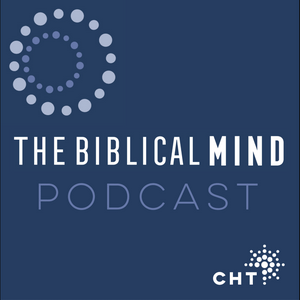Literature and Idealism: Or, How The Bible Is A "Thick" Story (Karen Swallow Prior) Ep. #213
What do Tolkien, vocation, and gritty literature have in common? In this conversation, Dru Johnson talks with literary scholar Dr. Karen Swallow Prior about why Christians often gravitate toward fantasy and romantic ideals—and why that can be a problem. Karen critiques the elevation of genre fiction like The Lord of the Rings as literary canon and urges Christians to engage “thick texts” that challenge us and train us to read Scripture more deeply.
They discuss how modern reading habits—dominated by email, social media, and skimmable articles—undermine our ability to understand both literature and biblical texts. Karen argues that literature forms our posture toward the world, and that our spiritual and moral imagination needs the grounding realism found in great novels and gritty stories.
The conversation pivots to Karen’s new book on vocation, exploring how distorted expectations around passion, work, and calling are leaving young people disillusioned. Instead, she calls for a deeper, more historically grounded view of labor, meaning, and responsibility.
This episode is a must-listen for those interested in education, theology, literature, and the subtle ways imagination shapes our lives of faith.
For more of Karen's literature:
https://karenswallowprior.com/
We are listener supported. Give to the cause here:
https://hebraicthought.org/give
For more articles:
https://thebiblicalmind.org/
Social Links:
Facebook: https://www.facebook.com/HebraicThought
Instagram: https://www.instagram.com/hebraicthought
Threads: https://www.threads.net/hebraicthought
X: https://www.twitter.com/HebraicThought
Bluesky: https://bsky.app/profile/hebraicthought.org
Chapters:
00:00 Exploring Literature and Vocation
02:37 The Role of Literary Criticism in Cultural Contexts
05:44 Tolkien, Lewis, and the Literary Canon
08:46 Understanding Thick Texts: Literature and the Bible
12:04 The Importance of Reading Skills in Biblical Studies
14:55 Interpreting the Bible: Layers of Meaning in Texts
19:49 The Importance of Humility in Understanding Literature
24:00 Navigating Vocation and Career Expectations
29:54 The Reality of Menial Jobs and Their Value
33:37 Balancing Idealism and Grit in Literature
38:47 Finding Vocation in the True, Good, and Beautiful


